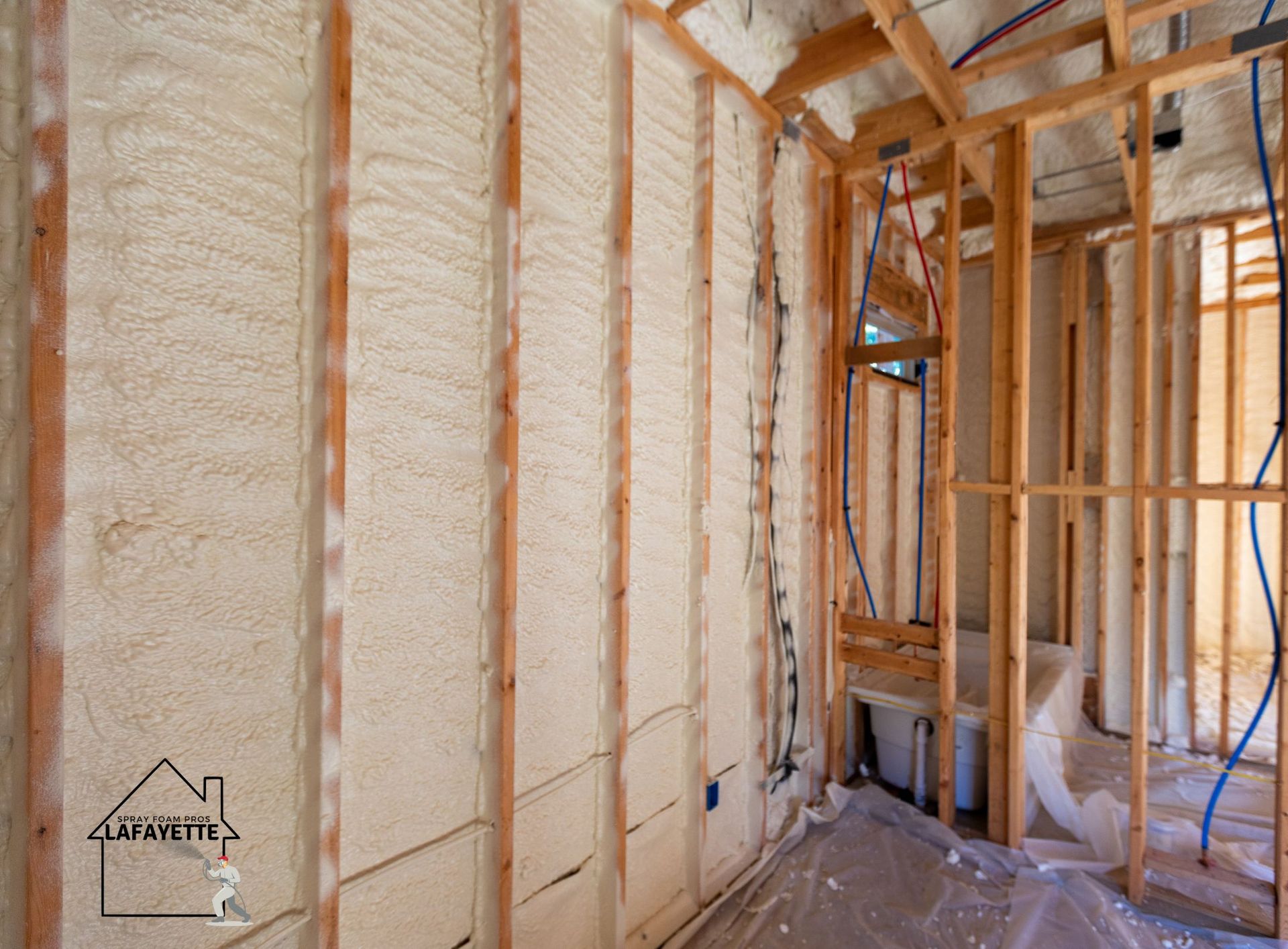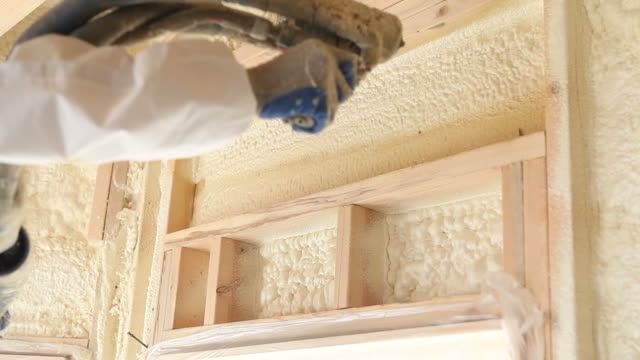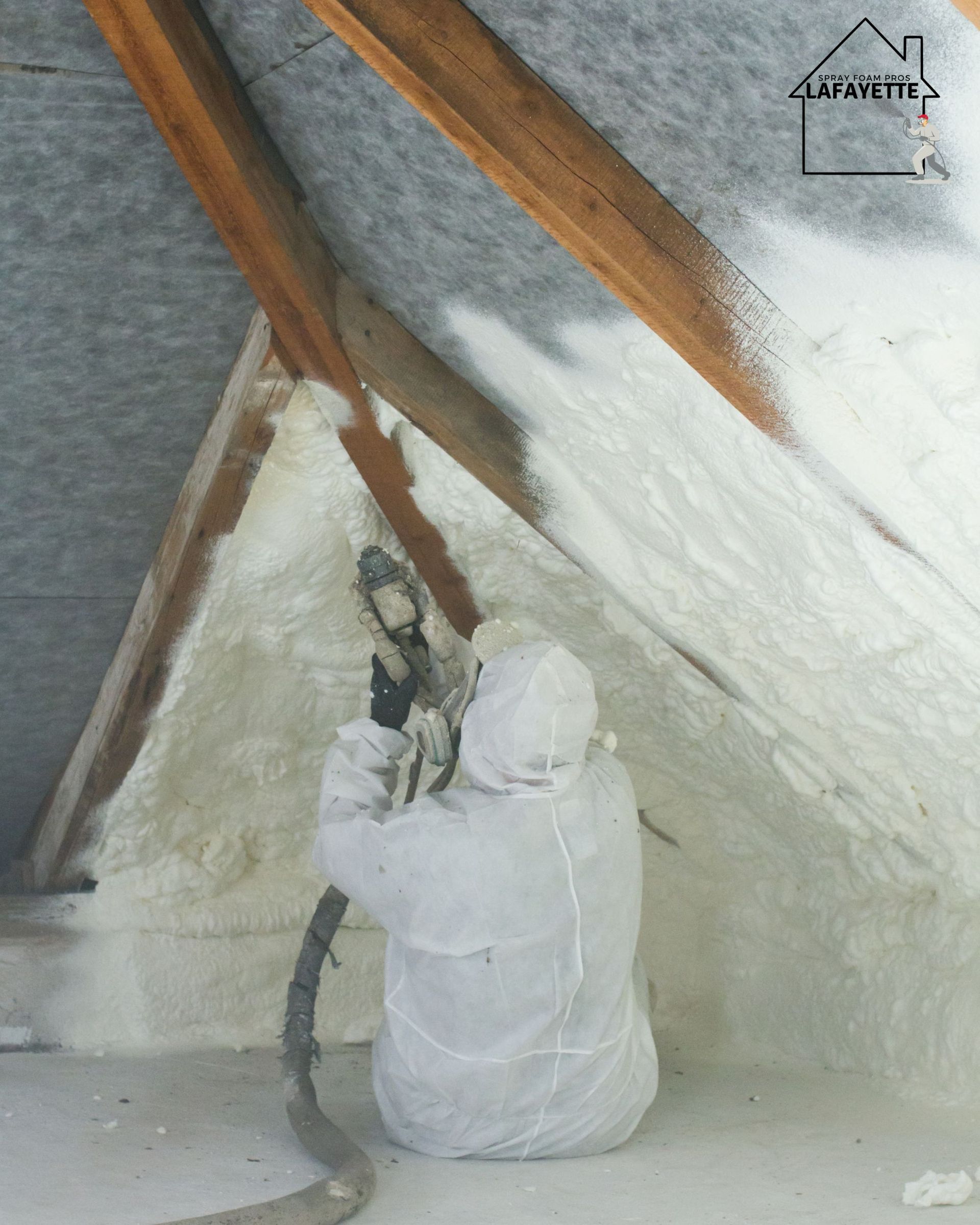Blog Layout
Creating Healthier Indoor Environments in Lafayette
Aug 28, 2023
Protecting Yourself From Allergens Through Spray Foam Insulation

In the pursuit of healthier and more comfortable living spaces, homeowners are increasingly turning to innovative solutions that not only enhance energy efficiency but also promote indoor air quality. Among these solutions, spray foam insulation has gained prominence for its ability to create airtight seals, prevent air leakage, and improve thermal performance. However, a lesser-known advantage of spray foam insulation is its potential to address indoor allergens and contribute to healthier indoor environments. In this article, we delve into the relationship between spray foam insulation and allergens, exploring how this insulation type can play a vital role in creating healthier homes.
Understanding Indoor Allergens
Indoor allergens are substances that can trigger allergic reactions or exacerbate existing allergies in sensitive individuals. Common indoor allergens include dust mites, pollen, pet dander, mold spores, and cockroach debris. These allergens can lead to a range of symptoms, such as sneezing, coughing, wheezing, runny nose, itchy eyes, and skin irritation. For those with allergies or respiratory conditions like asthma, managing indoor allergens is crucial to maintaining their health and well-being.
The Role of Insulation in Indoor Air Quality
Insulation is a critical component of a home's thermal envelope, contributing to energy efficiency and comfort. However, traditional insulation materials like fiberglass and cellulose can sometimes trap allergens, promoting their circulation within the indoor environment. This can be particularly problematic for individuals who are sensitive to these allergens.
The Advantage of Spray Foam Insulation
Spray foam insulation, known for its expanding properties and ability to create an airtight seal, offers several advantages that contribute to better indoor air quality and allergen control:
Air Sealing
One of the primary benefits of spray foam insulation is its capacity to create an effective air barrier. By sealing gaps, cracks, and crevices, spray foam reduces the infiltration of outdoor allergens such as pollen, reducing their presence indoors.
Minimized Allergen Circulation
Traditional insulation materials like fiberglass can sometimes allow allergens to circulate through the air and settle within wall cavities. Spray foam insulation's dense and closed-cell nature helps prevent the movement of allergens, reducing their presence in indoor air.
Moisture Prevention
Moisture is a common catalyst for mold growth, which can release spores into the air and exacerbate allergies. Spray foam insulation's moisture-resistant properties contribute to mold prevention, thus reducing the presence of mold-related allergens.
Barrier Against Pest Allergens
Spray foam insulation's airtight seal can help prevent the entry of pests such as rodents and insects that can carry allergens like dander and droppings. This barrier adds an extra layer of protection against pest-related allergens.
Improving Indoor Air Quality
By minimizing allergen infiltration and circulation, spray foam insulation contributes to improved indoor air quality. This is particularly beneficial for individuals with allergies, asthma, or other respiratory sensitivities.
Implementing Spray Foam Insulation for Allergen Control
When considering spray foam insulation for allergen control, it's important to work with experienced professionals who understand the nuances of installation. Proper application ensures that the insulation forms a seamless and effective barrier against allergens.
A Healthier Indoor Living Experience
As homeowners become increasingly aware of the impact of indoor air quality on their health and well-being, the importance of effective insulation cannot be overstated. Spray foam insulation offers a comprehensive solution that goes beyond energy efficiency, addressing indoor allergens and contributing to healthier indoor environments. By creating airtight seals, minimizing allergen circulation, and preventing moisture-related issues, spray foam insulation helps homeowners take a proactive approach to managing allergens and promoting well-being. As more individuals seek to create homes that support their health, the role of innovative insulation solutions like spray foam continues to gain recognition for its contribution to healthier living spaces.
Spray Foam Insulation And Its Impact To Indoor Air Quality In Lafayette Homes
Insulation plays a vital role in indoor air quality by preventing the infiltration of outdoor pollutants and allergens. Proper insulation, such as spray foam insulation, creates a barrier that helps keep indoor air cleaner and healthier.
Spray Foam Insulation Can Help With Allergen Control In Lafayette Homes
Yes, spray foam insulation's dense and closed-cell structure acts as a barrier against allergens such as pollen, dust mites, pet dander, and mold spores. By preventing allergen circulation, it helps reduce their presence in indoor air, benefiting individuals with allergies.
Spray Foam Insulation Can Address Moisture-Related Issues That Can Impact Indoor Air Quality
Spray foam insulation's moisture-resistant properties make it less susceptible to mold growth. By reducing the likelihood of mold, it helps prevent the release of mold spores that can worsen allergies and respiratory conditions.
Spray Foam Insulation Can Help Minimize Pest-Related Allergens In Lafayette Homes
Spray foam insulation's airtight seal acts as a barrier against pests like rodents and insects that can carry allergens like dander and droppings. This barrier helps prevent the entry of such pests into the home.
Spray Foam Insulation Is A Suitable Option For Homes With Individuals Who Have Allergies Or Asthma
Spray foam insulation is an excellent option for homes with allergy or asthma sufferers. Its ability to reduce allergen infiltration and circulation can contribute to a healthier indoor environment for individuals with respiratory sensitivities.
Considerations Every Homeowners Should Remember When Implementing Spray Foam Insulation For Allergen Control
Homeowners should collaborate with experienced professionals who understand proper installation techniques. Proper application ensures that the insulation forms an effective barrier against allergens, contributing to the desired indoor air quality improvements.
Steps Homeowners Can Take To Create Healthier Indoor Environments In Lafayette
Alongside insulation improvements, homeowners can focus on regular cleaning, proper ventilation, and maintaining a humidity level that discourages mold growth. These efforts, combined with effective insulation, contribute to a holistic approach to indoor air quality.
You might also like
SPEAK TO A TEAM MEMBER TODAY
© 2024
All Rights Reserved | Spay Foam Pros Lafayette



